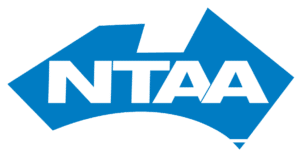If you are an employer registered for goods and services tax (GST), you may be entitled to claim GST credits for payments you make to reimburse employees (including company directors) or partners in a partnership for certain work-related expenses.

If you are running a business, you will be entitled to a GST credit for an employee-reimbursed expense if the following criteria are met:
- the employee’s (or associate’s) expense is directly related to their activities as your employee or the reimbursement is an “expense payment benefit”
- the sale of the item bought by your employee was taxable (that is, not “input taxed”), and
- your employee is not directly entitled to a GST credit for the expense.
The ATO says a business can claim GST credits where it has relevant documents such as receipts or tax invoices issued to the employee. These will need to be provided to substantiate claims for reimbursement.
A business that is entitled to a GST credit can claim it in a Business Activity Statement once it has been provided with this documentation.
An “expense payment benefit” is made, according to the ATO, when a business makes a payment to, or reimburses, another person “in whole or in part, of an amount of money spent by your employee as part of their employment with you”. Fringe benefits tax (FBT) may apply however.
A business is not entitled to a GST credit if it has:
- reimbursed “non-deductible expenses”, such as the portion of expenses relating to entertaining clients (usually only half of such expenses are deductible for the provision of entertainment)
- reimbursed expenses that relate to input taxed sales that are made in the running of the business and it exceeds the special threshold for financial purchases (a reduced GST credit is therefore available on specific purchases), or
- paid the employee an “allowance”.
The ATO says that if a business makes a payment
to an employee based on a “notional” rather than an actual expense, it is not making a reimbursement. For example, if a business makes a cents-per-kilometre payment to cover work-related use of an employee’s private car, it is paying an allowance and not making a reimbursement (again, consider the FBT implications).
MAKING REIMBURSEMENTS
A business makes a reimbursement where it pays an employee for the price, or part of the price, of a particular purchase they made.
For example, if an employee incurs an expense of $220 for a purchase, and is re-paid the whole $220 or even half of that, either payment will be a reimbursement.
A business will also have made a reimbursement if:
- it pays the employee for a particular expense they haven’t paid, provided they have become liable for the expense
- it pays the employee an advance for an expense they have not yet incurred, providing they have to repay any unspent amount of the advance to the business, or
- it pays an expense on behalf of the employee, for example, to the business that has made a sale to the employee (the GST legislation treats this type of payment as a reimbursement).
Where any personal use of a purchased item is involved, or the expense relates to non-cash employee benefits, liability for FBT should be a consideration.
This information has been prepared without taking into account your objectives, financial situation or needs. Because of this, you should, before acting on this information, consider its appropriateness, having regard to your objectives, financial situation or needs.




